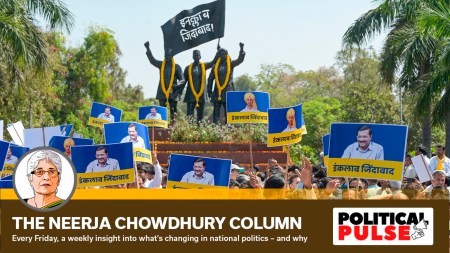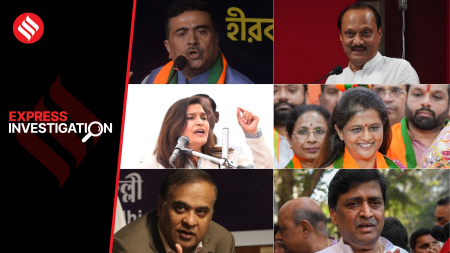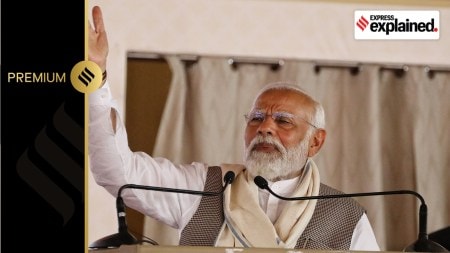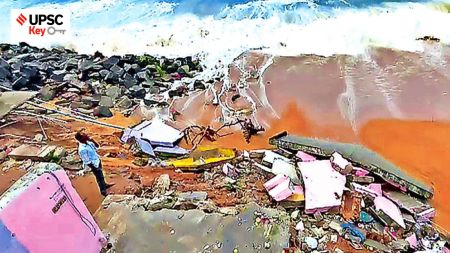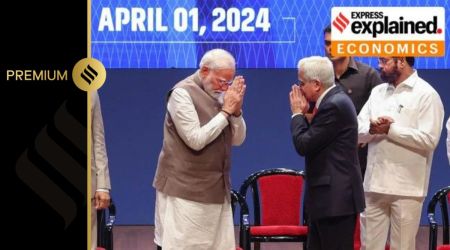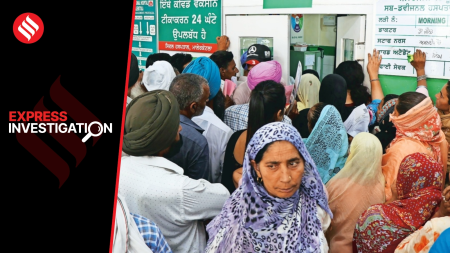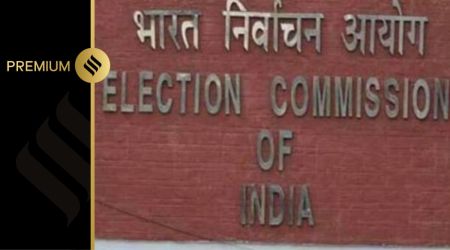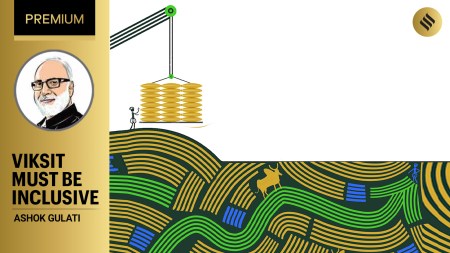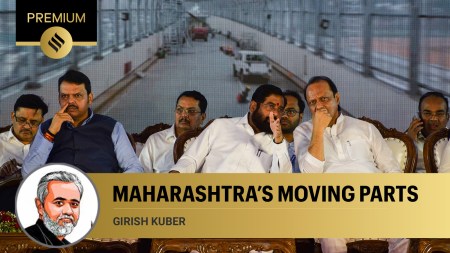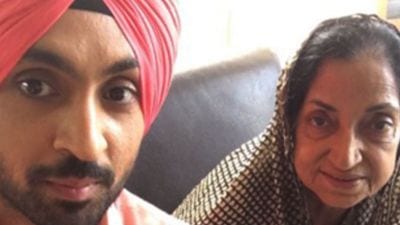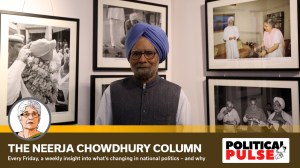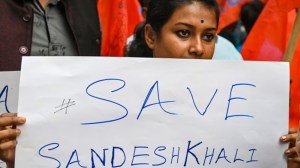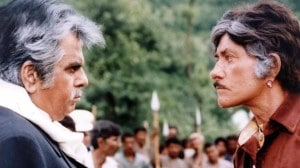- India
- International
Rupa Books: The wins and trials of a homegrown publisher
Chairman Rajen Mehra on his memoir, the challenges of being a publisher and how to make book fairs more inclusive
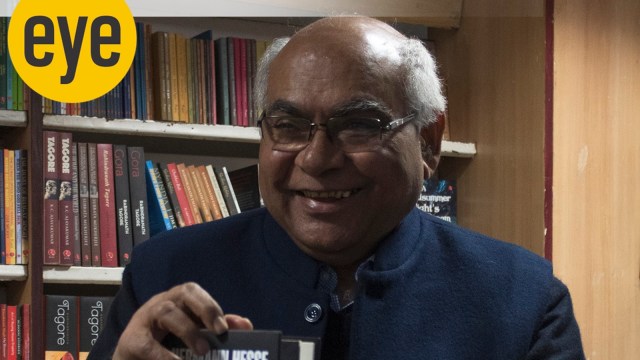 Rupa Books chairman Rajen Mehra stands in front of a collection of Rupa Publishing's variety of literature in New Delhi (Express photo by Caleigh Christy)
Rupa Books chairman Rajen Mehra stands in front of a collection of Rupa Publishing's variety of literature in New Delhi (Express photo by Caleigh Christy)Rupa Books chairman Rajen Mehra decided to pen the journey of his publishing company during a hospitalisation a few years ago, Never Out of Print (Rs 500, Rupa), inspired by his granduncle Daudayal Mehra’s leap into entrepreneurship in Calcutta back in 1936. The company is one of the few independent English-language book publishers in India today, and we speak to Mehra on what made that possible. Excerpts:
A big part of Rupa’s story was coffee-fueled discussions about books, art and politics in Calcutta. As a publisher, do you miss such public spaces?
Our original office was in Albert Hall Building, which also housed the Indian Coffee House. In my college days, when people wouldn’t get space in the café, they would walk into our office and buy books. Lot of intellectuals like Satyajit Ray, Mrinal Sen and MJ Akbar came, and I started interacting with them. Leftism was at its peak. I left all that when I left Calcutta. Delhi I would say is more bureaucratic, more political.
Your non-fiction catalogue is much larger than fiction. Are you going to invest more in fiction?
In the 1980s, we published best-selling authors like Sidney Sender, Agatha Christie, Alistair McLean. Our sales were internationally talked about. Youngsters like Anurag Mathur, Ranjit Hoskote, Sudipto Sen, Salman Rushdie were coming up. We had distributed Midnight’s Children while availability and pricing were an issue. Fiction is very difficult, you have to get a plot, work it around, everyday things are changing so rapidly.

How do you combat international publishers and their gradual consolidation? They dominate the market.
It’s a blessing in disguise. We were the first to import Penguins into the country, and our relations with them were great from 1936 to 1992. But suddenly they decided to go away and we lost more than 50 percent of our business. We decided to become more independent. Collins joined us. You can’t build publishing in a day. When Collins left us in 2002, we were ready with half the list we wanted. By 2015, we became totally dependent on our own publishing.
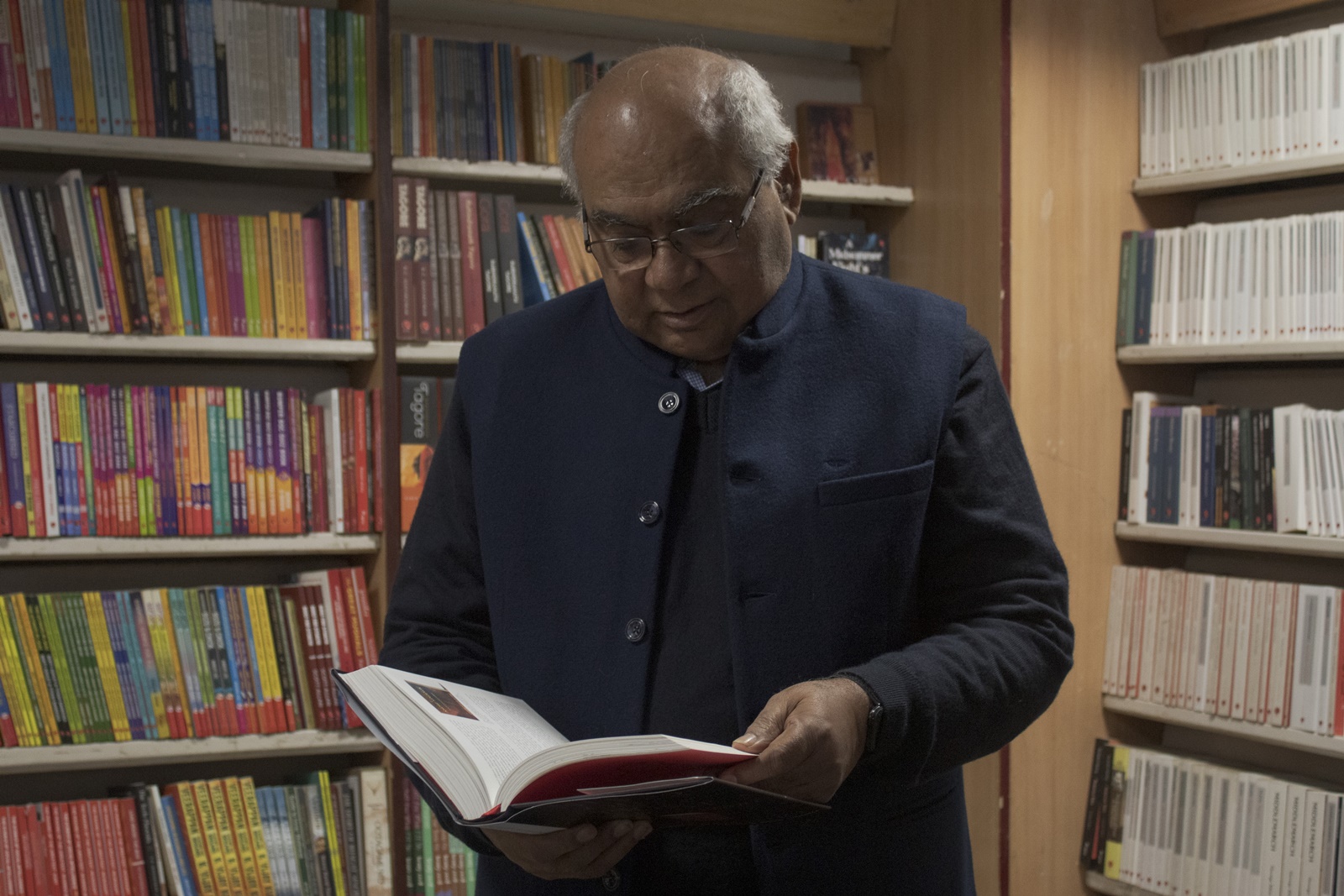 Rupa Books chairman Rajen Mehra’s (Express photo by Caleigh Christy)
Rupa Books chairman Rajen Mehra’s (Express photo by Caleigh Christy)
Are modern-day publishing targets and quotas diluting editorial quality or the choice of books published?
You don’t get an author like Joel Lucas or Milan Kundera today. (Ideological) writing got over in mid-80s. In India it was after 1992’s liberalisation. If you don’t have an ideology, what do you do? What comes, you take it and forget about it. It’s like fast food. The quality obviously has to go down. Crime writers like Ken Follet and Robin Cook and Jeffrey Archer have a commitment to write one book a year or two. An ordinary book takes more than 10 years to complete. It is also affecting the film industry. People like more fun and frolic, with sex and music and dance.
Rupa started with Bengali publishing, but had to shut it down in the 80s. The translated catalogue isn’t huge. Do you want to go there?
I was very keen to get into Hindi publishing. I invested a lot of money in promoting that but somehow it didn’t click. Elder publishers like Rajkamal Prakashan and Radhakrishna survived because they have been in this line for a long time. You can only do translations when the quality of writing is good and long-lasting. It takes about two to three years to do it well. And writers like Mahasweta Devi, Ashapurna Devi, Sivasankari and Sarala Devi Chaudhurani are not easy to translate. At Aleph, we do lots of translations which are doing very well.
How have you dealt with Amazon’s influence on bookstores disappearing and the fall of book prices? Amid rising paper and distribution costs.
When you say Amazon has taken away the booksellers’ margin totally, it’s not correct. Booksellers have started disappearing also because real estate prices have gone up. In Connaught Place, you won’t find in the inner circle any bookshop except Jain Book Agency. It used to be Book Home, Dalgotia, Ramakrishna and Sons, and New Book Depot. But they have all disappeared. Fortunately, in Khan Market, we have one or two shops around.
Amazon probably lost money for 10 years to get into this market. If you have to give high discount to Amazon… it’s not that the publishers are not sinners, they also increase their price accordingly. not every book is going to be successful in Amazon. Some books people spend a lot of money to promote it.
There has been opposition to a GST on books, whereas a GST exists on their raw materials. What’s your position? Some people say that eventually book prices will increase, so why not impose?
I’ve discussed this with the government many times. GST is on author’s royalty. It is not small, it is 18 percent. You pay GST on paper, printing, labour. What more do you want, on the final product? I think government understands that, which is why they don’t let you put a GST on books. Our biggest problem is, if this book is 500 rupees, my publishers have to pay 90 rupees or 18 percent GST to government. That shouldn’t happen. 18 percent on MRP is quite a lot of money.
Do you think self-help, a major market for Rupa, gets an unfair rap? Critics accuse it of propagating unscientific advice that caters to a small, privileged, urban, neurotypical audience.
When a manuscript comes to us, we can only suggest to an extent what kind of audience it should have across A-tier, B-tier or C-tier cities. The A-tier cities are where books sell most. If, say, public libraries are strong in Kanpur, then obviously literature will go towards that. It’s like a river. It makes its own passage.
Book fairs are often criticised today for not being disruptive enough, for inviting many establishment figures. Has their role been reduced to commerce and not championing marginalised voices?
I had a fight once in Jaipur, over a 1600-page history book of Rajasthan, by an author from Jaipur. It took her 10 years to write it but there was no review. I was invited to speak and I spoke of how the book wasn’t talked about even in Jaipur. A huge gap is there. We should have more reading sessions. I remember actor Roshan Seth was one of the finest orators in Delhi. When there was a book launch, people would ask him to come and read it out.
Sports memoirs have been a big part of Rupa’s story, from Sunil Gavaskar to Mushtaq Ali to Vijay Merchant. A common complaint against the genre has been limited access to sources leading to one-sided stories of the celebrity. Have you tried to address that?
Publishing doesn’t have a lot of money and you have to pay a lot to get sports memoirs written. And (athletes) can’t (always) tell the truth because the contract is such.
D Mehra was so saddened by Nehru’s death that he wrote and published a book of couplets, and did the same for Lal Bahadur Shastri. Rupa has consistently published political memoirs, sometimes ruffling feathers and inviting bans. How have Rupa’s relationships with the current establishment been? Has the space to publish anti-establishment books shrunk in the past 10 years?
D Mehra had an emotional relationship with those leaders because it was the Independence movement. He even used to take slips in the night and give them to revolutionaries like Jaiprakash Narayan.
On the current dispensation, talking about Advani or Jaswant Singh or anybody, we are not ashamed of doing anything if it is correct. We are not pressured by everybody. I’m very firm on this. I’ve fought for Salman Rushdie many times. You can ask Mark Tully, whose Mrs Gandhi’s Last Battle was detained. I was under pressure. We had to pay very heavy damages. We sorted it out and printed 30,000 copies and the book sold. The person who wanted to pressure us ran away because they were afraid that they’d be exposed.
I haven’t come across anybody (opposing anti-establishment books). Today we talk about our current Prime Minister because he is a dominant force. There are many issues with him or anybody, which can only be answered hypothetically. When we published R Venkataramana, I said everything openly, how the Congress party behaved. And journalist Karan Thapar picked it up.
Apr 04: Latest News
- 01
- 02
- 03
- 04
- 05


